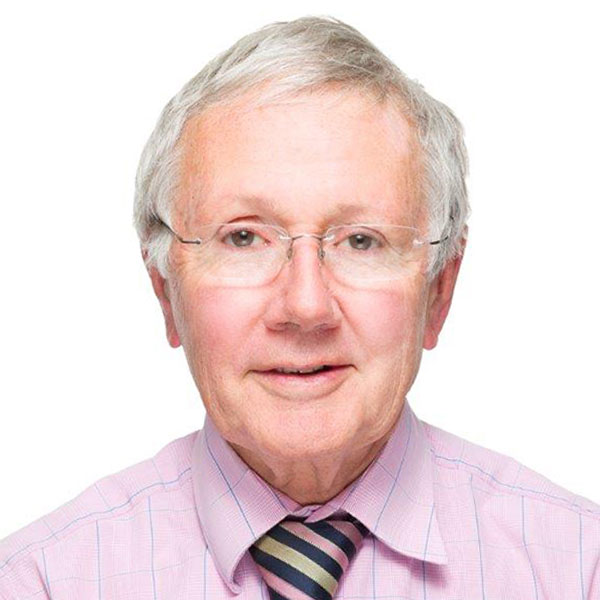Vasectomy

What is a Vasectomy?
Vasectomy is the most efficient procedure for male contraception and is performed surgically to produce a block to sperm movement from the testes. This renders men infertile without affecting sex drive, libido and sperm volume.
The practices prefer a pre-consultation between the patient and the doctor to ensure a full understanding of the procedure and ensuring all questions are fully answered.
What happens during a Vasectomy surgery?
The surgery is very simple, it is performed under local anaesthetic to block any pain and it takes around 30 minutes in a dedicated procedure room.
The doctor will cut the tubes that transport the sperm to the semen (called the vas deferens : plural=vasa) and tie these vasa. This way, the semen won’t be fertile anymore, without affecting the production of testosterone by the testes, which will continue to go directly into the bloodstream.
You will be awake during the procedure and afterwards, you can freely drive yourself home or back to the office (provided no heavy lifting is involved).
Pre-Operative Instructions
Stop taking aspirin, ginko, olive leaf extract, fish oil and other natural medicines for 1 week before your procedure as these may increase bruising and bleeding
Tell us at the time of the booking if you have had previous surgery for undescended testes as a child
Tell us at the time of the booking if you are taking aspirin, warfarin or other ‘blood thinning’ medication prescribed by a doctor for instructions from the doctors before ceasing these medications
Call us and confirm your attendance 48 hours before surgery
At home on the morning of the procedure shave the scrotum, the underside of the penis and all of the front wall of the scrotum, remove the hair all the way to the top of the penis, including any pubic hair that seems to fall onto the scrotum. We suggest that you don’t use depilatory creams such as Veet and Nair as these can cause chemical burns, waxing is a good option if you can stand pain
Wear supportive underwear (not boxers)
Note: There are no other special requirements
As the operation is carried out under local anaesthetic alone, it is quite safe to drive to and from the surgery yourself. Also, you can eat and drink as normal (no restrictions required).
Post Operative Instructions
PAIN MANAGEMENT
If you have discomfort in the first 24-48 hours after the local anaesthetic wears off, rest with your feet up and take anti-inflamatory medication such as ibuprofen 200 mg, 2 tablets 4 times a day after food.
Ibuprofen can be obtained from any supermarket or pharmacy. You will be also be given given a script for a strong pain reliever, Panadeine Forte, in case ibuprofen is insufficient but should not be filled as it is very rare for this to be needed.
Rarely an ache and/or swelling can develop after a few days or even weeks which is usually due to inflammation of the epididymis and testes. This usually responds to anti-inflammatory medication.
Note: you should not take ibuprofen if you have had a stomach ulcer in the past or suffer from asthma
BRUISING
Bruising of the skin on the scrotum is not a concern as long as it is not associated with scrotal swelling as it reflects only blood just under the skin and will disappear with time.
BLEEDING
In the rare case that the wound bleeds, “pinch” over the wound with some gauze for ten minutes, then let go very slowly. Contact the surgery if it continues.
WASHING
You may shower but do not rub soap directly into the scrotum for the next 2 days. Do not have a bath or go swimming for 3 days until the wound heals.
WOUND CARE/SUPPORT
It is advisable to continue to wear supportive underwear for 2 days (place the gauze provided over the wound till healed).
ACTIVITY AND SEX
Strenuous exercise, prolonged walking, bike riding, climbing and heavy lifting should be avoided for the first two days. Then your level of activity including sex should be guided by your degree of comfort.
STERILITY
You are not sterile yet! Sterility takes both time and an adequate number of ejaculations after a vasectomy. Most men have very low or zero sperm counts after about 12-14 ejaculations over about eight to twelve weeks. One in five can take longer, but by 6 months 99% are clear.
Your operation cannot be considered successful until you have confirmed that a ‘zero’ sperm count has been achieved. The risk of failure after this is extremely low.
Note: EXCESSIVE BLEEDING, SWELLING OR PAIN IS NOT NORMAL. IF ANY OCCUR, CONTACT THIS SURGERY ON 1300 364 480 OR YOUR LOCAL DOCTOR
Vasectomy Frequently Asked Questions
IS IT PAINFUL?
Most patients report that “it was much better than the dentist”.
The slow introduction into the skin and alongside each vas tube with a very fine needle, as small as diabetics use to inject themselves with insulin of a warmed mixture of quick and long acting local anaesthetics with a “no sting” additive is relatively painless, works almost instantly and lasts for 4-6 hours.
One can feel a tiny poke in the skin, then a bit of a squeeze as the anesthetic is applied to each vas tube. There is no sudden pain post operatively which can occur after waking from general anaesthesia or after the use of standard local anaesthetics or sedation.
CAN A VASECTOMY BE REVERSED?
Vasectomy should be considered irreversible.
If you are contemplating a reversal, sperm storage or intracytoplasmic sperm injection (ICSI), then vasectomy may not be the best choice for you. (ICSI involves taking an immature sperm directly from the testicle and injecting it into an egg)
The success rate for reversal operations is 90% in the first 5 years. The success rate declines with time due to decreased sperm production and the development of anti-sperm antibodies.
Sperm storage is available and can be organised
Note: Medicare does not rebate reversal operations or ICSI or sperm storage.
DOES A VASECTOMY AFFECT SEXUAL FUNCTION?
Physically a vasectomy makes no difference to your sex drive or performance, as testosterone and semen production (apart from the sperm component) remains unaffected. Many men say their sex life is improved because they no longer have to worry about the higher rates of contraception failure with other methods.
WHAT HAPPENS TO THE SPERM?
The cut end of each vas closest to each teste is left open letting the sperm which are still produced in the testes after the vasectomy escape into the scrotum. As the volume of immature sperm is miniscule they are reabsorbed by the body without causing any swelling. This “open-ended” technique minimises post-operative discomfort as there is no build-up of pressure in the testes and epididymis.
ARE THERE ANY SIDE EFFECTS OF VASECTOMY?
Serious side effects are rare. Most men experience some discomfort, bruising and swelling around the operation site of a minor and transient nature. This is usually relieved by simple pain medications and supportive underwear.
In rare cases postoperative bleeding, inflammation of the epididymis and testes, infection, cyst formation, delayed wound healing or persistent pain can occur. If any unexpected symptoms or effects arise we are happy for you to ring for advice or return for review.
PROSTATE CANCER, HEART ATTACKS AND OTHER ISSUES
Whilst there have been past media reports of links with cardiovascular disease, male menopause and cancer of the testes and prostate these have not been supported by large studies in many countries. Although this does not mean that there can be no possible ill effect on health, vasectomy remains one of the safest and most effective permanent contraceptive choices available.
Most prefer to have their pre-vasectomy consultation and vasectomy procedure performed on the same day.
Alternatively you can organize a separate pre-vasectomy consultation at no cost (bulk billed to medicare) and with no obligation to discuss the operation in detail and have time to consider the information before making an appointment for the procedure.
Note: you must ask the receptionist to notify the doctor and discuss at least by phone if:
– you are taking medically prescribed anti-coagulants such as aspirin or warfarin
– you have had previous surgery as a child for undescended testes
Phone our friendly staff on 1300 364 480
HOW MUCH DOES IT COST?
The initial consultation is bulk billed for patients with a valid medicare card otherwise a consultation fee of $50 applies.
The vasectomy procedure is $400 *for further information on payment terms and conditions please call the practice directly on 0754966399.
Patients with a valid Medicare card will receive a rebate of approximately $201.
Dr David Easton has been performing vasectomies for over 35 years using the surgical technique under a local anaesthetic, it’s simple and completed in under an hour. All of our reception staff and nurses are friendly and well trained.
The doctor also performs neo-natal circumcisions for babies under the age of 4 months using a local anaesthetic block to ensure their comfort. Dr. David Easton uses the ‘Gomco Clamp’ method.
Referrals are not required from your general practitioner for vasectomies or neonatal circumcision.

To Schedule an appointment
Click on the link below
Bulk billing for Medicare and DVA card holders* (*Terms apply)
Professional Appointment System based on bookings and calls
Accurate Reminder System you can count on
